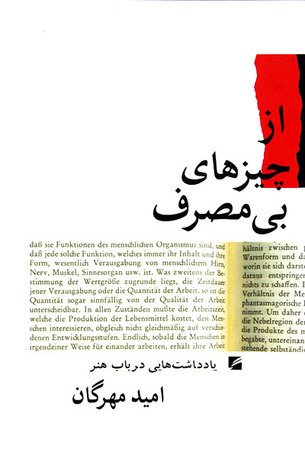The Narrowest Path: Antinomies of Self-Determination in Four Aesthetic Studies.
A strategic reconstruction of modern German thought from the standpoint of aesthetic theory, The Narrowest Path reveals the characteristically modern, revolutionary project of freedom-as-autonomy to be unresolvably antinomic. Basing himself on four seminal texts by Kleist, Hegel, Marx, and Adorno, Mehrgan develops four basic figures: the literary, the person, the republic, and the artwork. All flourished during the long period between the French Revolution and the aftermath of the Second World War in Europe. The key antagonist is the rule of capital, paradoxically enabling self-determination and thwarting it. Still present in contemporary revolutionary experiments, this daunting conflict, the book argues, shows itself best in the aesthetic — but the resolution lies elsewhere.
Elāhiyāt-e Tàrjomeh: Walter Benjamin va rèsálát-e motarjem (Theology of Translation: Walter Benjamin and the Task of the Translator) Tehran: Farhang-e-Saba, 2007.
A monograph on the idea and practice of translation in Iranian intellectual and political context as it stands in relation to the West. By revisiting the idea of literalness, the book proceeds through an interpretation of Walter Benjamin’s reflections on the task of the translator.
Tafakkor-e ezterāri (Emergency Thinking). Selected Critical Notes. Tehran: Gam-e-no, .2009
Collected short articles in critical theory and political thought written in the humanities page of Shargh newspaper during 2003-2006.
Ideha-ye mánsour (Prosaic Ideas). Tehran: Rouzbahān.2012
A collection of short fragments about theory of ideas as a theory of society. With an introductory essay on the concept of Idea in Walter Benjamin and a postscript about translation.
Az chizhaye bi-masraf: yaddashtahi darbareye honar (Of Useless Things: Notes on Art), Tehran: Game-no, 2008.
Selected notes on aesthetic theory and literary criticism with a translation of and commentary on the ‘Fetishism’ chapter in Marx’s Capital, vol.1




